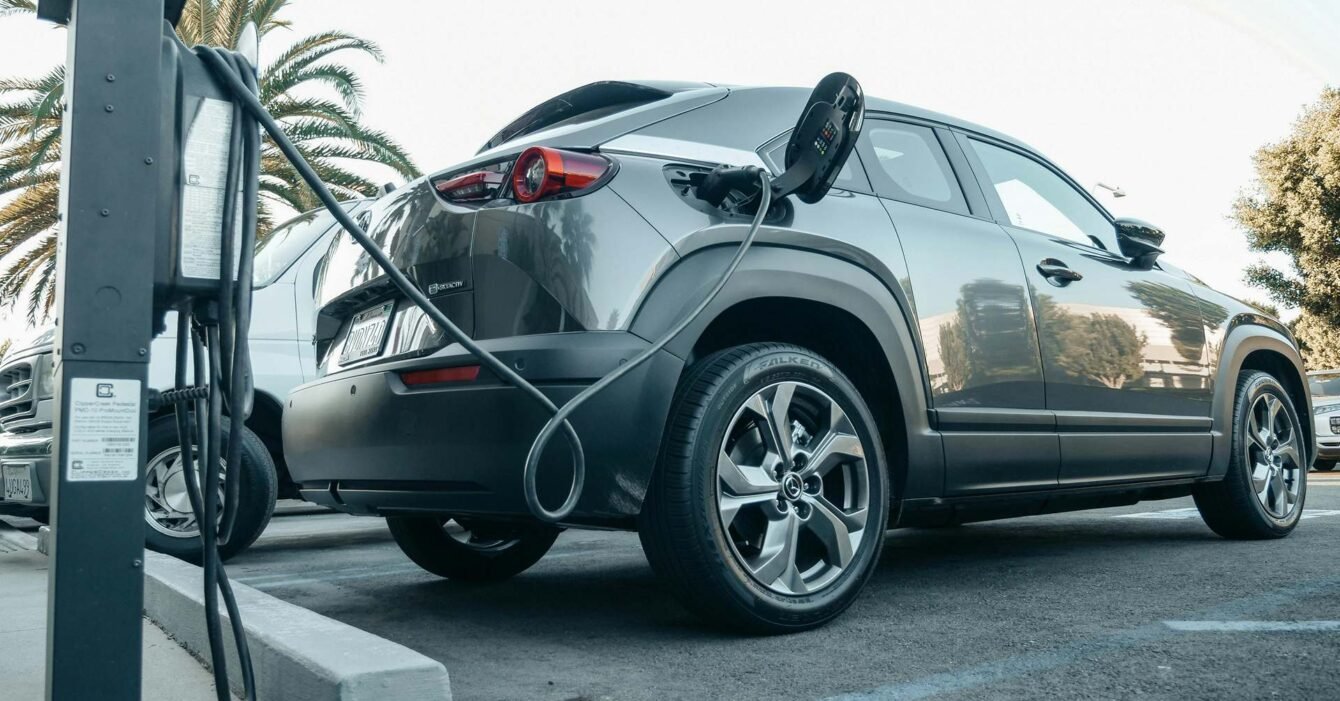Saudi Arabia Targets 30% EV Adoption: A Pivotal Moment for Infrastructure Strategy
Saudi Arabia’s shift toward green mobility is gaining momentum, with a clear target of 30% EV adoption in Riyadh by 2030. As the Kingdom positions itself as a leader in sustainability, the success of applying Saudi EV Infrastructure Strategy relies not only on policy and investment but on strategic advisory that ensures each step is practical, efficient, and market-ready.
The reality of building an EV ecosystem goes beyond installing charging stations. It involves urban planning, consumer accessibility, regulatory alignment, and technological integration—areas where experienced consultants can offer essential guidance to prevent roadblocks that might hinder adoption. Whether it’s shaping charging infrastructure feasibility studies or optimizing public-private collaborations, advisory plays a critical role in laying a foundation that ensures long-term viability rather than short-term fixes.
EVIC’s 5,000 Fast-Charging Stations: Strategic Guidance Matters in Saudi Arabia
Saudi Arabia has created the Electric Vehicle Infrastructure Company (EVIC), a joint venture between the Public Investment Fund (PIF) and Saudi Electricity Company (SEC), to lead the charge in expanding EV accessibility. With a commitment to deploy over 5,000 fast-charging stations across 1,000 locations by 2030, EVIC is setting the groundwork for nationwide adoption.
However, deploying infrastructure at scale requires deep expertise in energy management, regulatory frameworks, and investment modeling. Strategic advisors have a unique role to play—helping businesses structure partnerships, ensuring grid capacity can handle demand spikes, and optimizing station placements for accessibility. Without carefully planned consulting efforts, infrastructure rollouts risk falling short of consumer expectations, delaying EV adoption instead of accelerating it.
Lucid’s KAEC Facility: Local EV Production in Saudi Arabia
Saudi Arabia’s commitment to EVs extends beyond charging infrastructure—it’s about building a domestic manufacturing ecosystem. Lucid Motors launched its KAEC facility in 2023, with a projected capacity of up to 155,000 EVs annually, marking a milestone in the Kingdom’s automotive evolution.
For manufacturers entering a new market, advisory firms specializing in production scalability, supply chain management, and workforce development are indispensable. Establishing efficient manufacturing pipelines, integrating with global export networks, and ensuring compliance with Saudi sustainability standards require informed decision-making that consultants can help structure. The role of advisory in this context is not simply about optimizing production—it’s about ensuring that Saudi Arabia’s EV market remains competitive, resilient, and future-ready.
Public Transport Expansion: Saudi Sustainable Mobility Needs Thoughtful Strategy
Saudi Arabia’s approach to sustainable mobility isn’t limited to private EV ownership. In February 2023, the Public Transport Authority (PTA) signed contracts for the largest intercity bus project in Saudi Arabia, linking 200 cities with an efficient, low-emission transit system. This initiative, projected to serve 6 million passengers annually across 76 routes, aligns with the National Strategy for Transport and Logistics Services, aiming to increase public transport usage from 1% to 15% by 2030 while reducing carbon emissions by 25%.
Sustainable transport investments require thoughtful advisory services. Consultants focusing on network optimization, integration with EV infrastructure, and route efficiency can support policymakers and transit operators in structuring models that encourage consumer adoption, enhance cost efficiency, and meet Saudi Arabia’s broader environmental goals. Without a well-planned Saudi EV Infrastructure Strategy, even the most ambitious projects risk underutilization, failing to maximize the potential of eco-friendly transport expansion.
Also Read: Saudi Arabia’s Roadmap to Sustainable EV Infrastructure
Saudi Needs Up to 34,000 Stations

With Saudi Arabia targeting 30% EV penetration, charging demand is expected to soar. Current estimates suggest that Saudi Arabia requires between 30,000 to 34,000 charging points to support projected EV growth. While infrastructure investments are accelerating, optimizing locations, ensuring network efficiency, and structuring seamless consumer access are critical factors that consulting expertise can refine.
One key opportunity lies in digital EV solutions. With Saudi Arabia’s high smartphone and internet penetration, integrating real-time mobile apps for charging reservations, interactive station mapping, and adaptive pricing models will define the consumer experience. Consultants specializing in smart technology integration can ensure that EV infrastructure aligns with modern mobility standards, making adoption user-friendly and accessible rather than complex and restrictive.
Conclusion: A Market That Requires Expert Guidance to Thrive
The Saudi EV Infrastructure Strategy represents more than technological innovation—it is a strategic shift in transportation that requires expert advisory across multiple disciplines. From charging station rollout to EV manufacturing, from public transit expansion to grid optimization, consulting services are essential to ensuring that infrastructure investments lead to long-term success.
For industry professionals specializing in mobility strategy, investment modeling, and regulatory frameworks, Saudi Arabia’s EV expansion presents a moment to help shape one of the Middle East’s most ambitious sustainability efforts. Smart, data-driven consulting will not only accelerate adoption but ensure that every milestone in Saudi’s EV journey is built for lasting impact.
Also Read: Tesla’s Saudi Entry: Will It Help Achieve the 30% EV Goal?



